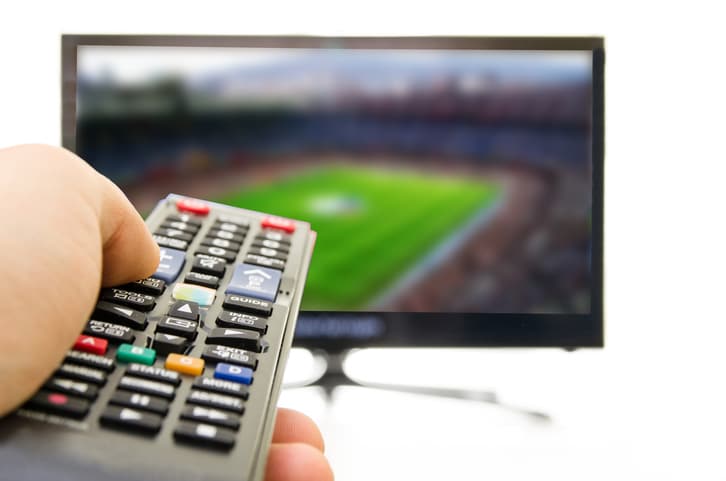It’s the Super Bowl. The game is close. You’re screaming at the TV as your team makes a disastrous mistake.
“You’re killing me!” you might shout.
Actually, you could be right…
Researchers have found that stress from watching the Super Bowl increases the risk of a heart attack by a small but significant amount.
Scientists studied the death records in Los Angeles County for two-week periods starting on Super Bowl Sunday in 1980 and 1984.
Los Angeles had two football teams at the time, the Rams and the Raiders. In 1980, the Rams played the Pittsburgh Steelers in the big game. In 1984, the Raiders faced the Washington Redskins.
As a control, the researchers looked at heart deaths from the same two weeks in 1981, 1982, and 1983—years when Los Angeles did not have a team in the Super Bowl.
Recommended for You: Lower Blood Pressure From Your Kitchen
The tasty vegetable that researchers found lowered blood pressure by five points… The “unhealthy” food that the Huffington Post agrees works the same way as ACE inhibitors to control BP and reduce the risk of heart attack…
What do these—and a handful of other—natural blood pressure fighters have in common? For one, most you’ll find in your kitchen. But more important, they’re backed by real, scientific studies. Find out more HERE.
In 1980, the L.A. Rams suffered an excruciating loss. Leading in the fourth quarter, the Rams allowed the Steelers to score 14 unanswered points. One touchdown came on 73-yard pass play. The Rams lost 31-19.
After the game, heart attack rates jumped in Los Angeles and stayed high for two weeks. Researchers found that heart-related deaths increased by 15% for men and 27% for women compared to the same two-week period when the city did not have a team in the Super Bowl.1
Dr. Robert A. Kloner is a cardiology professor at the University of Southern California’s Keck School of Medicine. He was lead author of the study.
“Fans develop an emotional connection to their team,” he said. “And when their team loses, that’s an emotional stress.”2
Researchers were surprised the death rate increase for women was higher than that for the men. You might think that men are more emotionally invested in their team.
Scientists theorize that women not only root for their team, they root for their man. Seeing their partner suffering anguish may cause heart-damaging stress in women.3
The good news? The Super Bowl appears to be a heart risk only for fans of the losing team.
In the 1984 Super Bowl, the L.A. Raiders blew out the Washington Redskins 38-9. The easy victory appeared to keep stress levels lower for Los Angeles residents. Cardiac death rates in the city barely moved. They actually went down among women and seniors.
The study was published in the journal Clinical Cardiology.4
How Stress Kills
Researchers say extreme emotional stress drives up blood pressure and heart rate. Blood vessels constrict. In people with plaque-narrowed arteries, it can cut off blood flow to the heart. This brings on a heart attack.
Japanese doctors have even coined a phrase for stress heart attacks. They call them “takotsubo.” This is because the struggling heart takes on a distinctive shape that resembles the takotsubo, a traditional pot Japanese fishermen use to catch octopuses.
And the Super Bowl study confirms previous research.
A study of 1,750 people in the U.S. and Europe published in the New England Journal of Medicine found that outside of a physical shock such as an infection, emotional shock was the most common reason for takotsubo heart attacks.5 And a study in Germany during the 2006 soccer World Cup found that heart attacks spiked on days when the German team was playing.6
4 Ways to Stop a Super Bowl Heart Attack
If you’re worried about your heart, there are simple protective steps you can take during the Super Bowl.
- Remember: It’s a game. It’s easy to lose perspective when your team makes it to the Super Bowl. Remind yourself that your life will be largely the same whether your team wins or loses.
- Breathe. Super Bowls tend to be slow-moving affairs. You have plenty of time to de-stress by following the Harvard breathing method of ridding yourself of emotional steam.
First, leave the TV room and sit in a quiet, comfortable location. Take a normal breath.
Then take a deep breath. Breathe in slowly through your nose, making sure your chest and lower belly expand as you completely fill your lungs. Breathe out slowly through your mouth.
Now close your eyes. Continue taking slow, deep breaths and think of an image that makes you happy. It could be a loved one or a place you enjoy.
After five minutes, you’ll feel calmer and more focused.7
- Take a halftime break. Skip the halftime show and take a brisk 10-minute walk instead. Walking is a simple, fast stress reliever.
- Don’t dwell on it. If your team loses, move on. Don’t obsess. Spend a few days avoiding sports media. Remind yourself that your team did well just to make it to the Super Bowl.
Editor’s Note: Some brave doctors are finally telling the truth about heart disease…revealing that the most effective treatments for America’s #1 killer are not those sold by Big Pharma. Like the natural supplement a Mayo Clinic professor prescribes to all his heart patients…and the fruit nutrient shown to lower cholesterol safer than a well-known prescription drug.
Discover all the details HERE.
Like this Article? Forward this article here or Share on Facebook.
References:
1http://www.huffingtonpost.com/a-marc-gillinov-md/personal-health_b_4695163.html
2http://edition.cnn.com/2011/HEALTH/01/31/super.bowl.heart.attacks/
3http://www.medscape.com/viewarticle/819747_2
4http://edition.cnn.com/2011/HEALTH/01/31/super.bowl.heart.attacks/
5http://www.health.harvard.edu/blog/stress-cardiomyopathy-a-different-kind-of-heart-attack-201509038239
6http://edition.cnn.com/2011/HEALTH/01/31/super.bowl.heart.attacks/
7http://www.health.harvard.edu/blog/stress-cardiomyopathy-a-different-kind-of-heart-attack-201509038239

